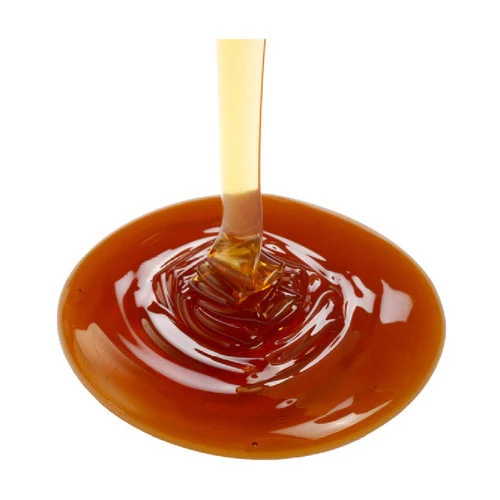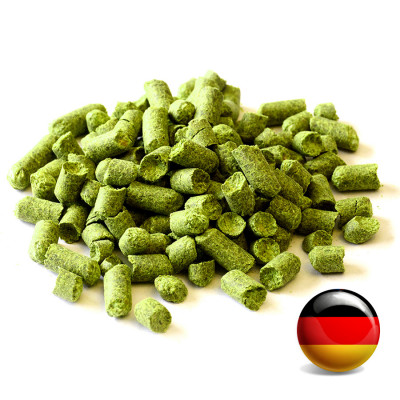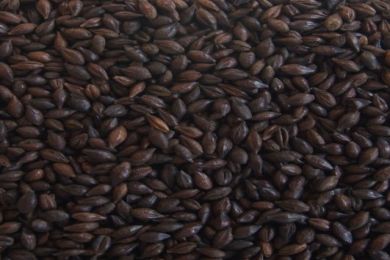Description
Select the Escarpment yeast from the dropdown list. Please contact store for current stock and availability. Email us at grapestoglass@shaw.ca or call 403-243-5907. If you don’t see what you’re looking for, please call the store and we’ll try to order it in. Packs have been known to bloat during shipping due to the yeast “off-gassing”. Please put this yeast in your refrigerator when received, as the yeast will be fine and should still be viable.
We ship parcels with Canada Post normally with 2 day transit times. Yeast shipped in the winter months or in +20°C need to have someone there to receive it. Please contact the store if you wish to use a different shipper.
All packs $15.99
Clean Ale Strains
Cali Ale
An exceptionally versatile ale yeast, suitable for nearly any style. Clean fermentation at a wide temperature range, and accentuates hop character. Can be slow to flocculate.
Attenuation: 75-85% // Optimum Temp: 18.3-22.2°C (65-72°F) // Alcohol tolerance: High // Flocculation: Medium
Vermont Ale
This high-character American ale yeast produces hop-accentuating fruity esters, accentuating stone fruit and citrus character, accompanied by a smooth body. We recommend fermenting at 19-20ºC initially, then raising to 22ºC to complete the fermentation, and holding warm for several days in order to clean up. We highly recommend attention to temperature control with this yeast. Attenuation: 73-83% // Optimum Temp: 18.8-22.2°C (66-72°F) // Alcohol tolerance: High // Flocculation: Medium
American Ale
Excellent performance, and somewhat lower attenuation than Cali Ale. Suitable for nearly any clean style. Much like Cali Ale, exhibits clean fermentation at a wide temperature range, and accentuates hop character.
Attenuation: 72-76% // Optimum Temp: 16-22.2°C (60.8-72°F) // Alcohol tolerance: Medium-High // Flocculation: Medium
Anchorman Ale
Clean fermentation profile, with slightly faster attenuation and flocculation than Cali Ale Yeast. Suitable for production of clean West Coast style ales. Attenuation: 75-80+% // Optimum Temp: 65-68F // Alcohol tolerance: High // Flocculation: High
Kölsch Ale
This balanced and clean ale yeast is of course great for Altbier and Kölsch production, but also for a wide range of beers including Blond ales, American Wheat, Berliner Weisse, Gose, and anywhere a clean fermentation is desired. Extended chilling or filtration is suggested to obtain clear beer.
Attenuation: 72-78% // Optimum Temp: 15-22°C (59-69°F) // Alcohol tolerance: Medium // Flocculation: Medium-low
English Ale I
A classic English ale yeast, fermenting and flocculating quickly, leaving residual sugars and accentuating malt character. Suitable for production of most English ale styles.
Attenuation: 63-71% // Optimum Temp: 18-22°C (65-69°F) // Alcohol tolerance: Medium // Flocculation: Very High
English Ale II
Higher attenuation than English Ale I, while still very flocculant. Suited for higher gravity English ales, and also great as a workhorse yeast strain for most English/American beer styles.
Attenuation: 72-80% // Optimum Temp: 18-22°C (65-72°F) // Alcohol tolerance: Medium // Flocculation: Medium-High
Foggy London Ale
This yeast strain was originally isolated from a brewery in London. It displays a balanced fruity flavour profile, and accentuates malt and hop flavours. It is especially suited to production of fruity hop-forward Northeast style IPAs.
Attenuation: 71-78% // Optimum Temp: 18-23°C // Alcohol tolerance: Medium-high // Flocculation: Medium
Specialty Ale
Hornindal Kveik Blend
This is a selection of two of our favourite strains from Terje Raftevold’s Hornindal Kveik. The blend shows mixed fruity character. We recommend highly fermentable wort and yeast nutrients to ensure complete attenuation. Highly flocculant but will produce haze in hoppy beers. This versatile yeast can be pitched cooler to yield a more neutral, lager-like profile as well. Attenuation: 70-80% // Optimum Temp: 15-35ºC (59 – 95ºF) // Alcohol tolerance: High // Flocculation: Medium-High
One of the most famous Norwegian Kveik yeasts. This is a single strain selected from Sigmund Gjernes’ Voss Kveik. This yeast can ferment at up to 42ºC (Sigmund pitches at 40ºC and free rises from there!) with clean flavours and a prominent citrus aroma. We recommend fermentation temperatures >25ºC, highly fermentable wort and yeast nutrients to ensure complete attenuation. This strain is also very alcohol tolerant and highly flocculent, although it will still produce considerable haze in heavily dry hopped NEIPAs. Attenuation: 70-75% // Optimum Temp: 25-40+ºC (!!!) // Alcohol tolerance: Very High // Flocculation: High
This kveik yeast was sourced from Jakob Årset, on the farm Årset in Eidsdal, Norway. The overall flavour profile is similar to the Hornindal Kveik Blend, but this blend shows a higher degree of hop biotransformation. This blend also exhibits a broad temperature range (we have heard of sub-15ºC) and tolerates acidic wort quite well.
Attenuation: 70-80% // Optimum Temp: 20-37ºC // Alcohol tolerance: Very High // Flocculation: High
Ebbegarden Kveik Blend
This kveik yeast blend from Stordal was sourced from Jens Aage Øvrebust. This blend displays prominent fruity esters, leaning toward tropical guava and mango, lending well to traditional as well as modern aromatic styles like NEIPA. Note that this blend accentuates hop bitterness slightly, so we recommend adjusting wort production to only use hops in the whirlpool and dry hop.
Attenuation: 70-80% // Optimum Temp: 22-37ºC // Alcohol tolerance: Very High // Flocculation: Medium
This enigmatic strain has proven itself in many breweries who use it alone or paired with Vermont Ale to produce fruit-forward, hoppy beers. Produces and enhances tropical fruit flavours. If used alone, we recommend a highly fermentable wort. This strain is non-phenolic, but contains the STA1 gene potentially resulting in diastatic activity. However, we have not typically seen aggressive attenuation with this strain.
Attenuation: 70-80% // Optimum Temp: 22-28ºC // Alcohol tolerance: Medium-High // Flocculation: Low
Old World Saison Blend
A characterful blend of two classic Saison strains. Produces complex fruit and black pepper notes along with a reliable, fast and high degree of attenuation. We strongly encourage a free rise fermentation, starting at 22C and rising to ~27C for optimal results. NOTE: One of the strains in this blend contains the STA1 gene, meaning it is a diastatic yeast. Many Saison yeasts are diastatic, due to the desire for very high attenuation levels. However extra care must be taken to ensure these yeasts do not cross-contaminate non-diastatic yeasts. Attenuation: 85+% // Optimum Temp: 22-27+ºC // Alcohol tolerance: High // Flocculation: Medium-low
A saison strain a little different from the rest. Produces a beer with balanced saison characteristics. Apparitions of spice, and a spectre of orchard fruit. Pairs nicely with Brettanomyces strains. This strain contains the STA1 gene, meaning it is a diastatic yeast and that relevant precautions should be taken to avoid cross contamination.
Attenuation: 85%+ // Optimum Temp: 25ºC+ (77ºF+) // Alcohol tolerance: Medium-high // Flocculation: Low
This wild Ontario ale yeast was isolated from an apple in a local orchard. Wild Thing produces distinct clove, spice, and subtle banana and apple fruit aroma. The taste is dry, spicy and clean. This yeast is most comparable to medium-attenuation Belgian-style ale yeasts. May require temperature ramping to 25C to ensure high attenuation. Attenuation: 75-82% // Optimum Temp: 25ºC+ (77F+) // Alcohol tolerance: 9% // Flocculation: Medium
A genre-defining Witbier strain, famous for balanced phenol and ester character with slight tartness that emphasizes wheat flavour. Attenuation: 72-78% // Optimum Temp: 19-24ºC // Alcohol tolerance: Medium // Flocculation: Medium-low
A Witbier strain which produces lots of complex fruity esters while still prominently displaying classic Witbier character. Medium-low flocculation helps insure classic Witbier haze.
Attenuation: 70-75% // Optimum Temp: 17-24C // Alcohol tolerance: 12% // Flocculation: Medium-Low
The classic German Hefeweizen strain, with the characteristic clove and banana flavours. Clove character can be emphasized though a ferulic acid rest in the mash, as well as by using a lower fermentation temperature. Banana ester character can be emphasized by slightly underpitching, creating a more fermentable wort, and/or using a higher fermentation temperature.
Attenuation: 70-75% // Optimum Temp: 18-24ºC // Alcohol tolerance: Medium-high // Flocculation: Low
Überweizen
A slightly more attenuative German Hefeweizen strain which still displays prominent banana/clove profile. Attenuation: 72-80% // Optimum Temp: 18-24ºC // Alcohol tolerance: Medium-high // Flocculation: Medium-low
Attenuation: 85+% // Optimum Temp: 22C-26°C (72-79°F) // Alcohol tolerance: >12% // Flocculation: Medium-Low
Lager Yeast
Krispy Kveik
Special blend of kveik yeasts selected by our lab wizards for optimal crispiness and crushability in beer. It can be used to make clean, lager-like beers in a fraction of the time since fermentations can be performed in the 20-30ºC range.
Attenuation: 72-82% // Optimum Temp: 18-30ºC // Alcohol tolerance: Medium-High // Flocculation: Medium-High
Isar Lager
One of our favourite German lager yeasts! Accentuates malt character, with a reliable fermentation profile and good flocculation and diacetyl reduction. We recommend raising fermentation temperature to 15ºC toward the end of fermentation in order to ensure full attenuation and diacetyl reduction. Can be used for both traditional and fast turnaround lagers.
Attenuation: 72-82% // Optimum Temp: 10-15ºC // Alcohol tolerance: Medium-High // Flocculation: Medium-High
Attenuation: 70-75% // Optimum Temp: 9-13ºC // Alcohol tolerance: Medium-High // Flocculation: Medium
A unique lager yeast typically used for California Common style beers. This strain is able to ferment at warmer temperatures than many lager strains, yet it still produces characteristic lager flavours.
Attenuation: 63-72% // Optimum Temp: 14-18ºC // Alcohol tolerance: Medium // Flocculation: Medium
This traditional Czech Pilsner yeast rewards patience with a clean, crisp profile and accentuates subtleties in selected malt and hops. We recommend cold fermentation and sufficient lagering when using this strain to deliver an authentic flavour.
Attenuation: 70-78% // Optimum Temp: 9-13ºC // Alcohol tolerance: Medium // Flocculation: Medium
A workhorse North American lager strain, produces clean and crisp beers; not just limited to light lager styles!
Attenuation: 70-80% // Optimum Temp: 10-14ºC // Alcohol tolerance: Medium // Flocculation: Medium
Bretts, Bacteria & Sour Blends
New World Saison
A new world Saison blend containing Saccharomyces and Brettanomyces to produce a fruity, funky beer with rustic charm. Brett character increases during aging. NOTE: the Saison yeast in this blend contains the STA1 gene, meaning it is a diastatic yeast. Many Saison yeasts are diastatic, due to the desire for very high attenuation levels. However extra care must be taken to ensure these yeasts do not cross-contaminate non-diastatic yeasts. Contact us for more information.
Attenuation: 80+% // Optimum Temp: 20-25ºC (68-77F) // Alcohol tolerance: 12% // Flocculation: Medium
This high-character blend contains a Saison strain with balanced ester and spice aromas, an enigmatic Brettanomyces anomala strain with tropical characteristics, and a complex and fruity Brettanomyces bruxellensis strain. Highly suited to aroma hop or fruit-forward farmhouse ales/saisons. NOTE: the Saison yeast in this blend contains the STA1 gene, meaning it is a diastatic yeast. Many Saison yeasts are diastatic, due to the desire for very high attenuation levels. However extra care must be taken to ensure these yeasts do not cross-contaminate non-diastatic yeasts. Contact us for more information. Attenuation: 80+% // Optimum Temp: 22-27ºC (72-81F) // Alcohol tolerance: 12+% // Flocculation: Medium-low
MOTHERSHIP Brett Blend
This is a rotating blend of the Brett strains we find most compelling at any given time. In a sense, it is an Unidentified Funky Object. MOTHERSHIP ranges from 6-10 Brett strains, and is constantly being tweaked. The character is highly dependent on fermentation conditions, but tends toward balanced, medium to high intensity Brett character.
Attenuation: 70-85% // Optimum Temp: 26ºC+ (80F+) // Alcohol tolerance: Medium-high // Flocculation: Low
This strain of Brettanomyces bruxellensis is noted for very prominent pineapple esters alongside a good dose of funk. It is suitable for primary fermentation of 100% Brett beers or secondary fermentation where some extra fruit and funk is desired. Works great with hops when co-pitched with clean ale strains as well, for faster turnaround of Brett IPAs.
Attenuation: 80+% // Optimum Temp: 22-25ºC // Alcohol tolerance: 12%+ // Flocculation: Medium-low
This Brettanomyces bruxellensis strain displays a balanced selection of fruity characteristics, with testers noting plum, red berry, citrus, and red apple, alongside subtle acidity. It is suitable for primary or secondary fermentation, but does shine in secondary with extended aging, where it displays prominent funky flavours.
Attenuation: 80+% // Optimum Temp: 22-25ºC // Alcohol tolerance: 12%+ // Flocculation: Medium-low
Lactobacillus Blend 2.0
This blend is a product of our ongoing research into optimizing Lactobacillus strain selection. It is a blend of our main L. plantarum strain with a strain of Lactobacillus rhamnosus. This blend has a wide temperature range ( 30ºC to 45ºC) and enhances fruit flavours in the finished beer, with tasters noting red fruit and guava aromas. It is intended for kettle/quick souring but can also be used in 0 IBU wort.
A blend of two Lactobacillus species, L. brevis and L. plantarum. This blend is designed to be usable at a wide range of temperatures, and is especially suited for kettle souring/sour worting. We recommend pre-acidifying wort to 4.5 with lactic acid, then pitching the Lactobacillus blend in a CO2-purged kettle or fermentor at 32-42ºC.
A single strain of Lactobacillus brevis. This strain is moderately hop-tolerant, and as such it can also be used for long-term souring of <10IBU beers. It also performs well in kettle souring/sour worting where fast and clean lactic acidity is desired. We recommend pre-acidifying wort to 4.5 with lactic acid, then pitching the Lactobacillus blend in a CO2-purged kettle or fermentor at 35-45ºC.
Lactobacillus plantarum
A single strain of Lactobacillus plantarum, which produces a fruity, lemony aroma. This strain performs best between 30ºC and 37ºC, and is best used in kettle/quick souring due to being hop intolerant.
A single strain of Lactobacillus delbrueckii often used for quick souring. This strain can produce mixed fruity, yogurt and citrus aromatics. We suggest souring at 35-40ºC.
This blend of 4 Lactobacillus strains is intended for use in long-term souring, where the bacteria need to overcome some hop-derived IBUs. We recommend using this on wort/beer of 15 IBU or less in the first generation, after which it will pick up increasing hop resistance.
Belgian Sour Blend
*Blend revised Dec 2017 to include additional microbes* A blend of 4 Brettanomyces strains isolated from Belgian Lambic beers, alongside 4 strains of Lactobacillus and 2 strains of Pediococcus, for the production of mixed fermentation sour ales. For best results, we recommend using this blend in beer with less than 7 IBUs initially. Subsequent generations can use increasing IBUs. This is supplied at secondary fermentation pitch rates, and is intended to be used in secondary or as a co-pitch, alongside a primary fermentation strain of your choice.
These products are available for custom propagation but may require longer lead times
Northwest Ale
A versatile American ale strain which leaves a soft and clean flavour profile and is not as aggressively attenuative as Cali Ale or Anchorman Ale. Attenuation: 72-78% // Optimum Temp: 16ºC to 22ºC // Alcohol tolerance: Medium-High // Flocculation: Medium
Irish ale yeast from a classic brewery, producing slight fruitiness and caramel notes. Great for stouts, porters, red ales, and pale ales. Attenuation: 70-75% // Optimum Temp: 18-22C // Alcohol Tolerance: Medium // Flocculation: Medium-high
A very classic, top-fermenting English ale yeast. Accentuates malt and produces fruity esters with a unique flavour profile. This strain does typically require a diacetyl rest.
Attenuation: 68-72% // Optimum Temp: 18-22°C (66-72°F) // Alcohol tolerance: Medium // Flocculation: Medium-High
Attenuation: 69-78% // Optimum Temp: 14-22°C // Alcohol tolerance: High // Flocculation: Medium
This yeast strain isolated from a Belgian abbey is an excellent choice for Belgian-style beers, including abbey ales. This strain produces mixed fruity esters, while also highlighting malt aroma. This strain can be used at higher fermentation temperatures without becoming overly phenolic/spicy.
Attenuation: 72-80% // Optimum Temp: 18-24C // Alcohol tolerance: >10% // Flocculation: Medium
A high-character Belgian ale strain, able to produce high gravity beers with strong fruity and medium phenolic character. Excellent for strong golden ales and Tripels, but versatile for all Belgian ale applications. We recommend a free rise fermentation for this strain. NOTE: This strain contains the STA1 gene, meaning it is a diastatic yeast. Many industrial yeasts are diastatic, due to the desire for very high attenuation levels. However extra care must be taken to ensure these yeasts do not cross-contaminate non-diastatic yeasts. Contact us with any questions or concerns.
Attenuation: 75-85+% // Optimum Temp: 20C-28°C (68-82°F) // Alcohol tolerance: >12% // Flocculation: Low
A workhorse lager strain, and a great choice for accentuating hops and/or more mineral-rich water profiles. Attenuation: 71-77% // Optimum Temp: 8-13ºC // Alcohol tolerance: Medium-high // Flocculation: Medium-low
A classic and commonly used German lager strain. Produces characteristic lager sulfur aromas. We recommend raising fermentation temperature to 15ºC toward the end of fermentation in order to ensure full attenuation and diacetyl reduction.
Attenuation: 72-82% // Optimum Temp: 10-15ºC // Alcohol tolerance: Medium-High // Flocculation: Medium





